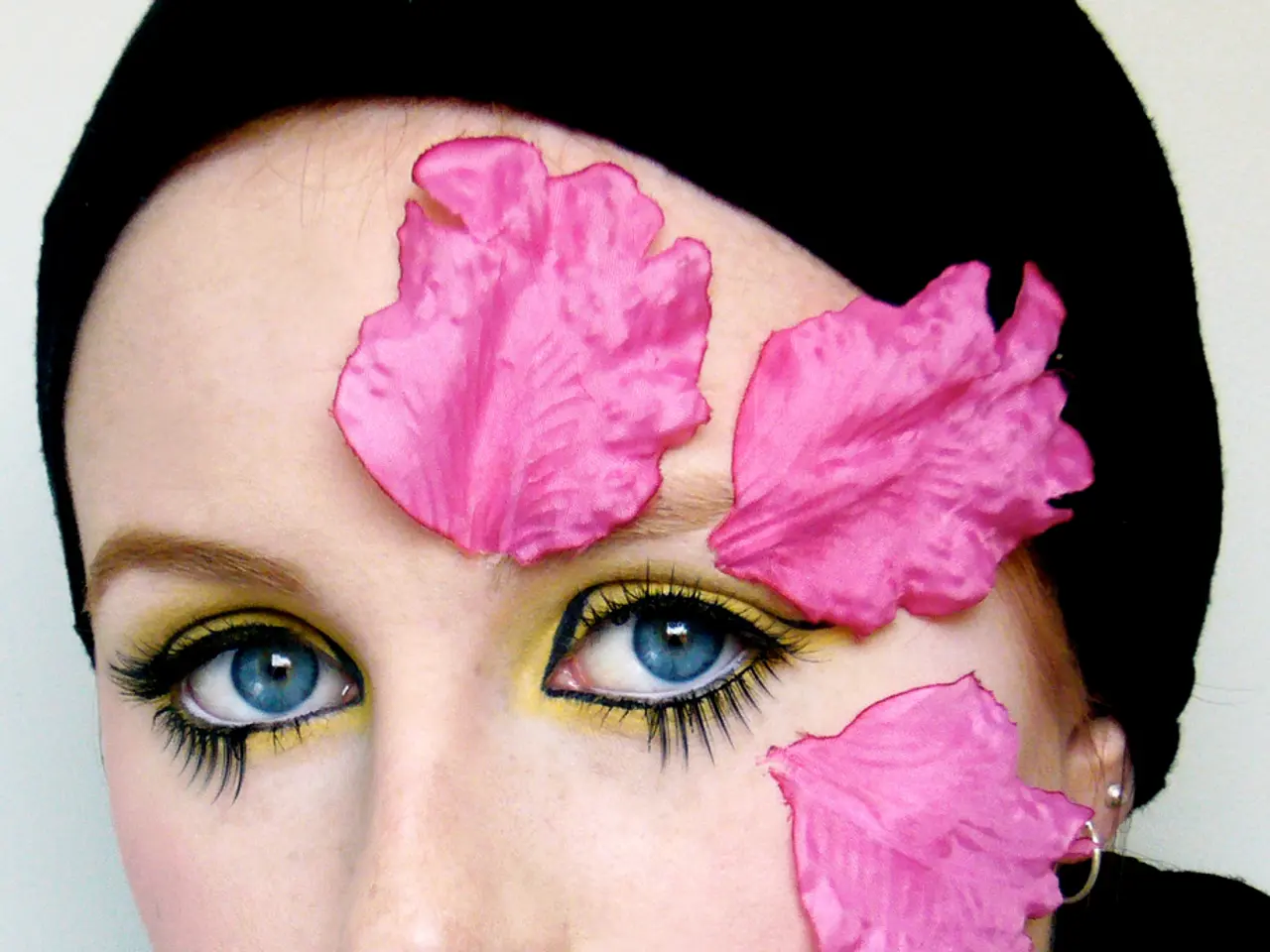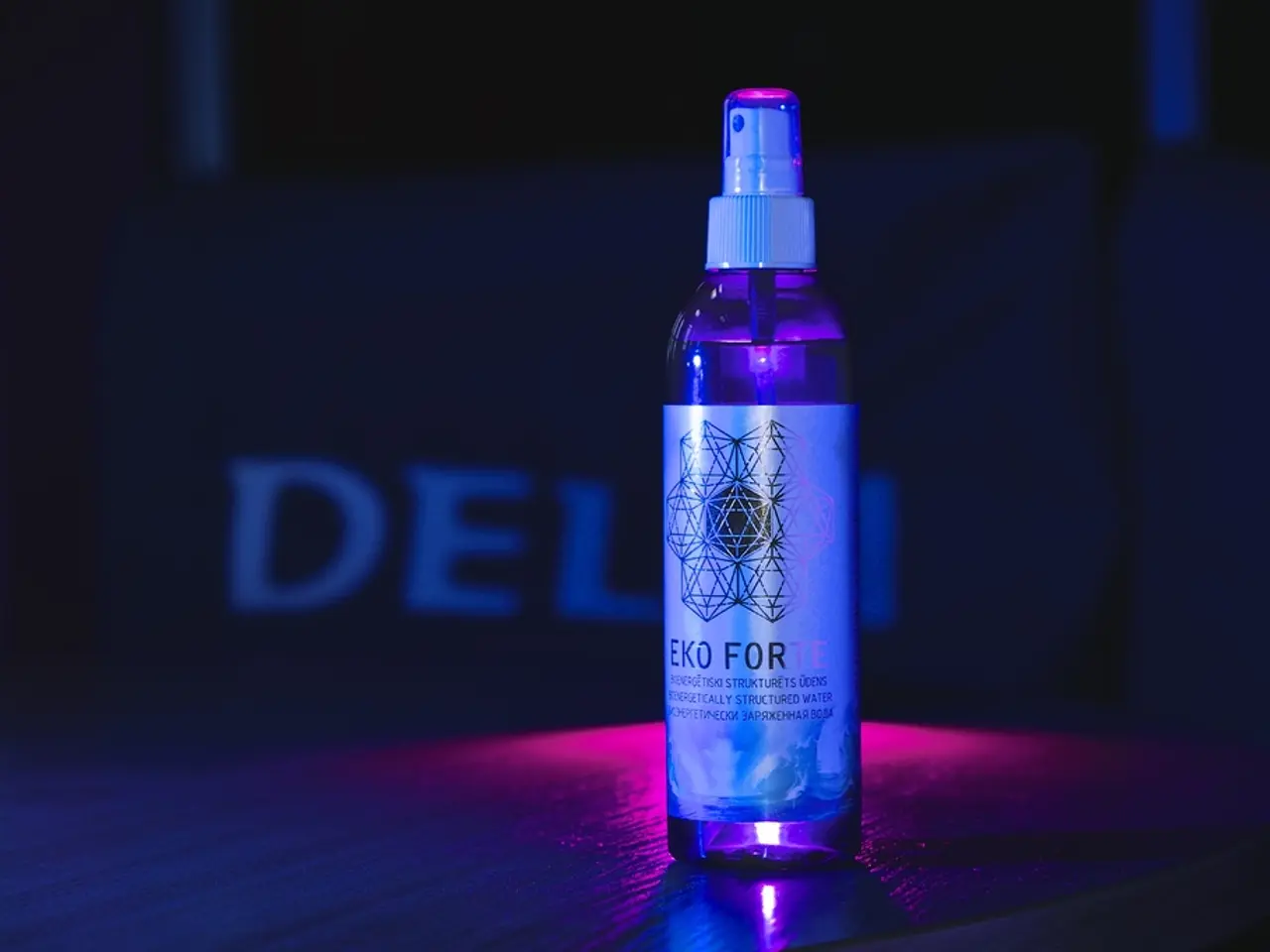Aging and Females: A Focus on Skin Wrinkles
Wrinkles, the earliest form of skin ageing, are subtle creases that appear on the skin, often associated with the face, neck, and hands. These creases, while a natural part of the ageing process, can be influenced by various intrinsic and extrinsic factors.
Intrinsic factors, such as ageing, genetics, and hormonal changes, play a significant role in wrinkle formation. As we age, our bodies naturally produce less collagen and elastin, slowing down skin renewal and leading to a loss of firmness and elasticity. Genetics can also impact how women age and their likelihood of wrinkling.
Hormonal changes, particularly those related to menopause, can cause lower levels of oestrogen to be produced, resulting in thinner skin, dryness, reduced elasticity, and more wrinkles. However, it's important to remember that wrinkles do not define a woman's beauty or worth. It's crucial for women to prioritise self-care and well-being while embracing ageing.
Extrinsic factors, on the other hand, are influenced by lifestyle choices and environmental factors. Prolonged and unprotected sun exposure, for example, causes wrinkling due to the degradation of elastin and collagen fibres and the formation of free radicals. Smoking is also strongly linked with premature skin ageing and wrinkles, particularly around the mouth and eyes.
Lifestyle habits, such as smoking, excessive alcohol intake, poor sleep quality, and repeated skin compression (like sleeping on sides or stomach), increase wrinkle formation by promoting inflammation, dehydration, and collagen degradation. Environmental pollution, too, can damage skin integrity, contributing to premature wrinkles.
To prevent or manage wrinkles effectively, a combination of sun protection, healthy habits, and a thoughtful skincare routine is essential. Daily use of broad-spectrum sunscreen is crucial to prevent UV-induced damage. Keeping skin well-moisturized protects the skin barrier and reduces dehydration lines. A healthy lifestyle, free from smoking and excessive alcohol consumption, helps reduce inflammation and skin damage, while prioritizing quality sleep supports skin repair.
Gentle skincare practices, such as using appropriate eye creams to slow under-eye wrinkle formation, removing makeup effectively, and avoiding overuse of harsh active ingredients that may dry the skin, are also important. Sleeping on the back can reduce mechanical pressure on the face, helping prevent wrinkle development.
For existing wrinkles, dermatological procedures and topical treatments targeting collagen synthesis may be considered. Women experiencing menopause may benefit from targeted skin care to counter collagen loss. Understanding the causes of wrinkles can allow women to make good choices for their skin.
Addressing and combating ageism and challenging stereotypes is also important to reduce the negative impact of wrinkles and promote a positive view of ageing. Beauty standards, ageism, and societal pressures contribute to feelings of self-consciousness, reduced self-confidence, anxiety, stress, depression, and poor self-image in women regarding their appearance and ageing.
By adopting a proactive approach to skincare and lifestyle choices, women can delay the development of wrinkles and maintain a radiant, youthful appearance. It's important to remember that beauty is not defined by the absence of wrinkles, but by the confidence, strength, and wisdom that they represent.
Mental health, particularly related to ageism and societal pressures, can contribute to feelings of self-consciousness, reduced self-confidence, anxiety, stress, depression, and poor self-image in women regarding their appearance and ageing. Therapy may be beneficial in addressing these feelings and promoting a positive view of ageing.
Nutrition plays a vital role in overall health and can impact skin health as well. A balanced diet rich in vitamins, minerals, and antioxidants can help support skin health and delay the signs of aging.
Science continues to evolve in the field of health-and-wellness, including skin care. Dermatological procedures and topical treatments targeting collagen synthesis may be considered for existing wrinkles, while advancements in skin care products can help counter collagen loss in women experiencing menopause.
In addition to skincare, focusing on women's health can contribute to maintaining youthful-looking skin. Hormonal changes, particularly those related to menopause, can impact skin health, so it's essential to consider targeted skin care for this stage of life.




